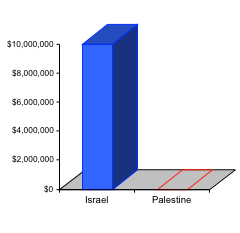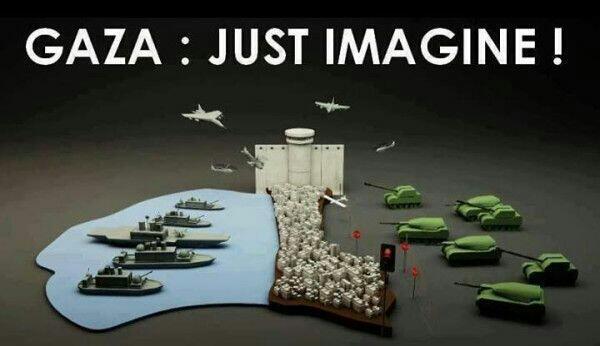By
Henry Siegman in Ha’aretz, December 20, 2013
The
American Studies Association has come under withering criticism for having singled out the State of Israel for a boycott of
its universities because of their government’s human rights violations against
Palestinians in the West Bank.
The
critics charge that not one of the many countries whose record on human rights
is no better, or even far worse, than Israel’s has been subjected to a boycott
by this organization or by other anti-Israel Boycott, Divestments and Sanctions
(BDS) organizations. Consequently, as argued by Alan Dershowitz in Haaretz and by others, their real
motivation must be anti-Semitism.
While I have questions about the wisdom
of boycotting Israeli universities some of whose faculties are often among the
most vigorous critics of their government’s policies towards the Palestinians,
the accusation of anti-Semitism is groundless. Of course, it is possible that
anti-Semites can be found among BDS supporters. But just as the fact that
Zionists can also be racists (as many unfortunately are, including government
ministers and leading rabbis who have publicly urged that Israeli Jews bar
Israeli Arabs from their neighborhoods) does not mean that Zionism is racism, a
charge made by the UN General Assembly in 1975 that was subsequently retracted,
so the BDS movement is not anti-Semitic because some of its supporters may be.
The charge that the BDS movement is
guilty of applying a double standard to Israel is equally groundless. For the
opponents of Israel’s half-a-century-long occupation of the Palestinians and
its denial of the Palestinians’ individual and national rights would not be
conducting BDS campaigns against Israel if, to begin with, Israel had not been
singled out for special treatment that no other country with equal or even far
better human rights records has received.

I challenge critics of the BDS movement
to identify another democracy from among those that do not hold another people
under near-permanent occupation (no other democracy does) that receives the
massive economic, military and diplomatic support lavished on Israel. I
challenge them to identify another country, no matter how spotless its human
rights record, about which America’s leaders—its president, vice president and
secretary of state—repeatedly declare “there is no daylight between our
countries,” even as they warn—virtually in the same breath—that Israel’s
policies are leading the Jewish state to apartheid.

Yes, there was a time when Israel needed
and deserved that assistance because it was uniquely exposed to existential threats
from its neighbors, but that time is long gone. Today, Israel is the regional
hegemon, while its neighbors are in a state of radical upheaval or
disintegration. Neither individually nor collectively, in the judgment of
former heads of Israel’s Shin Bet, Mossad, and Military Intelligence, do these
neighbors pose an existential threat to Israel. And every living former head of
the Shin Bet, as well as former heads of Israel’s other security organizations,
have insisted that Israel’s failure to strike a fair peace agreement with
Palestinians constitutes a far greater existential threat to the country than
do Iran’s nuclear ambitions.
As to Israel’s
democratic credentials, there is no more egregious violation of elementary
democratic norms than a predatory occupation that denies an entire people all
individual and national rights, confiscates their properties, bulldozes their
homes and dispossesses them from their internationally recognized patrimony
east of the 1967-border.
Even
worse are the democratic pretensions by which Israel seeks to justify this
behavior. Even Tzipi Livni, who has been a faithful advocate of a two-state
solution, told Mahmoud Abbas in 2009 that there could be no Israeli compromise
over the status of Jerusalem, for Israel’s decision to deny a Palestinian state
its capital in any part of East Jerusalem “is within the Israel consensus.”
One might have thought that a democracy
understands that a consensus of its own citizens cannot determine what it is
free to do to a foreign population. After all, Germany’s eliminationist
policies against the Jews in the 1930’s and 1940’s may have been within the
German consensus, but that did not constitute a democratic mandate.
There is something particularly
offensive about such attempts to give outrageously undemocratic behavior the
gloss of democratic legitimacy. It is precisely such phony pretensions of
democratic behavior that the BDS movement objects to. Countries that make no
bones about their despotism and their contempt for human rights do not require
that kind of exposure. They also do not require it because none is a
beneficiary of the largesse that the State of Israel receives, which makes the
donors accessories to the beneficiary’s bad behavior.
 |
During Fiscal Year 2013, the U.S. is providing Israel with at least$8.5 million per day in military aid and $0 in military aid to the Palestinians. (View Sources & More Information)
|
The reason for that largesse, as
explained repeatedly by America’s political leaders, is supposedly not an
efficient pro-Israel lobbying operation, but “deeply shared values.” It is an
explanation that becomes increasingly embarrassing when it comes from political
leaders who also warn that Israel’s policies are creating an apartheid society.
Those
who have not challenged the singling out of Israel for the unprecedented
support it is receiving from the United States have no ground for their
challenge of the BDS movement’s singling out of Israel for its treatment of the
Palestinians. BDS supporters would have had no reason for their initiative if
Israel had not been favored for that support even as it disenfranchises and
dispossesses another people under its occupation. It is the critics of BDS who
have been applying a double standard.













